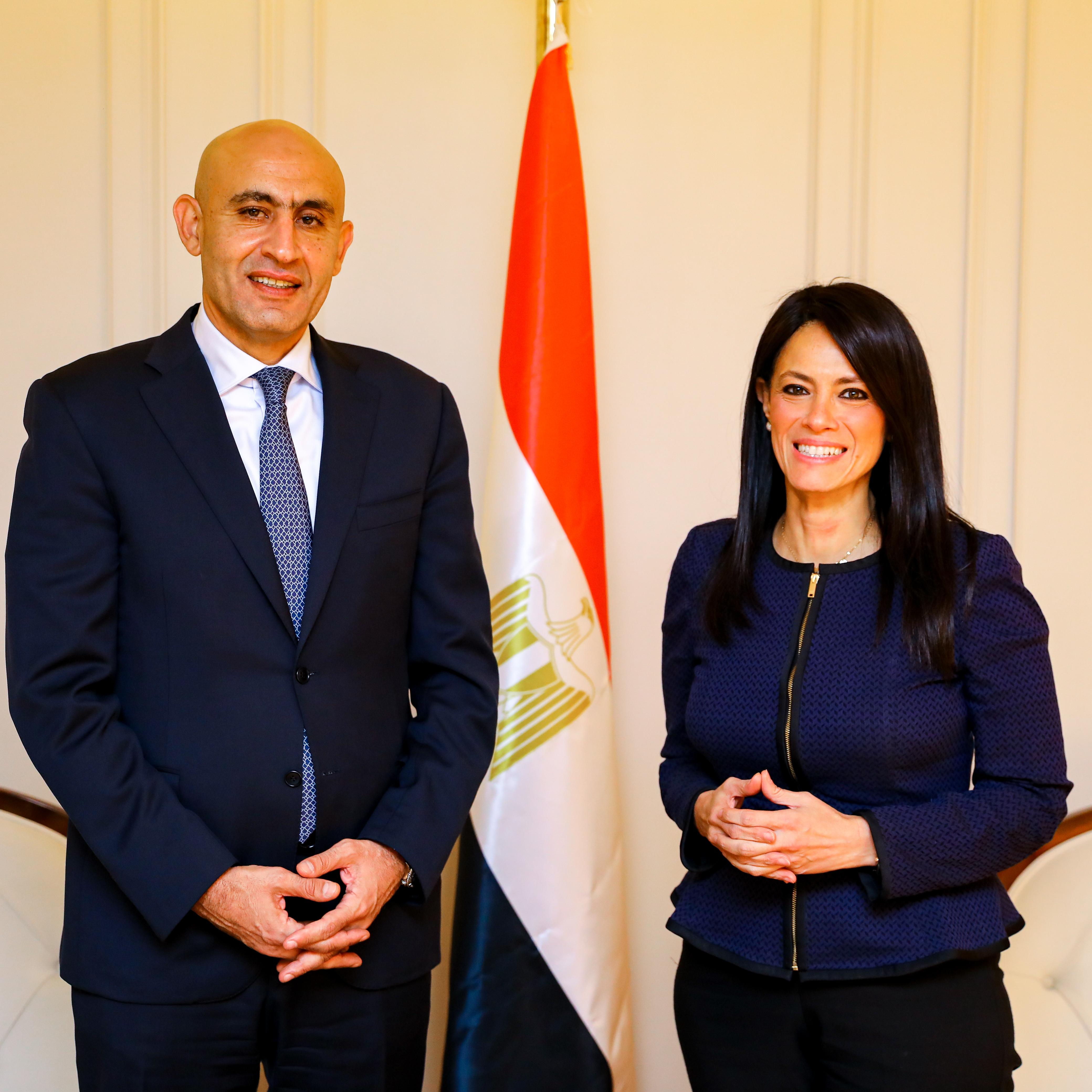Ministers of Planning, Economic Development and International Cooperation and Education discuss the necessary needs

Dr. Rania Al-Mashat, Minister of Planning, Economic Development and International Cooperation, received Mr. Mohamed Abdel Latif, Minister of Education and Technical Education, to discuss the necessary needs to improve the quality of the educational process in schools across the country in the 2024/2025 fiscal year plan, within the framework of the role played by the Ministry to formulate and implement evidence- and data-based economic development policies, and enhance efforts to bridge gaps in various sectors, through a national framework to enhance constructive partnership between relevant parties, based on national coordination and international cooperation, and includes all relevant parties from ministries, international partners, the private sector, and others.
During the meeting, Dr. Rania Al-Mashat pointed out that the Ministry of Planning, Economic Development and International Cooperation seeks to achieve integration between public investments and local resources, as well as international partnerships and external financing, in order to achieve development goals in various sectors, and to exploit international cooperation mechanisms to support the planning process by mobilizing resources and technical support, in order to achieve comprehensive economic development, while pointing out at the same time to the ongoing efforts to increase the efficiency of public investments and governance of investment spending in the current fiscal year plan in order to achieve the state's goals to make room for the private sector and reduce inflation rates. She explained that human and social development, which includes the education sector, accounts for 42% of public investments in the current fiscal year plan, which reflects the state's interest in investments in human capital despite investment governance efforts, stressing the great importance of the educational services sector, given its influential role in human development, increasing cognitive awareness and developing skills in a way that contributes to facilitating the transition to the knowledge economy, keeping pace with modern developments and enhancing competitiveness in various fields. Therefore, the state pays great attention to it by allocating resources to programs and projects in order to improve the quality of educational services, develop distance learning, and create a new generation with better education. For his part, Mr. Mohamed Abdel Latif, Minister of Education and Technical Education, stressed that the ministry is focusing on providing high-quality education to students, in light of the political leadership placing the education file at the top of the state's priorities and harnessing all available capabilities to overcome various challenges, noting that the solutions and mechanisms that have been implemented since the beginning of the school year were urgent solutions to confront the challenges that have accumulated over the years, represented by high student densities in classrooms and a shortage of teachers, stressing the success of these solutions and mechanisms in reducing student densities and filling the shortage of teachers.
Minister Mohamed Abdel Latif added that the ministry is working in parallel with various ministries and relevant authorities on sustainable plans and mechanisms to implement structural reforms that reflect on upgrading the education system at the level of schools in the republic.
During the meeting, the two sides reviewed the investment plan programs of the Ministry of Education and Technical Education, and the axes of the national program for structural reforms, which aims to achieve radical and purposeful structural reforms that support the economy's ability to achieve balanced and sustainable growth, including the establishment of new classes to address the problem of density, and the expansion of the construction of public education schools.
The strategic directions of the sector in the investment plan for the current fiscal year focus on expanding the establishment of new classrooms to reduce classroom density, especially in governorates with high rates, with a focus on reducing densities in the primary education stage, in addition to taking care to provide the necessary maintenance allocations within the state’s general budget, and focusing on priority governorates, as well as expanding the availability of schools for gifted students and applied schools to cover the largest possible number of governorates, and expanding partnership with the private sector, in addition to activating programs aimed at reducing illiteracy rates, with a focus on Upper Egypt governorates (Minya, Assiut, Fayoum, Beni Suef, Sohag and Qena), in addition to increasing interest in qualifying schools to obtain quality
